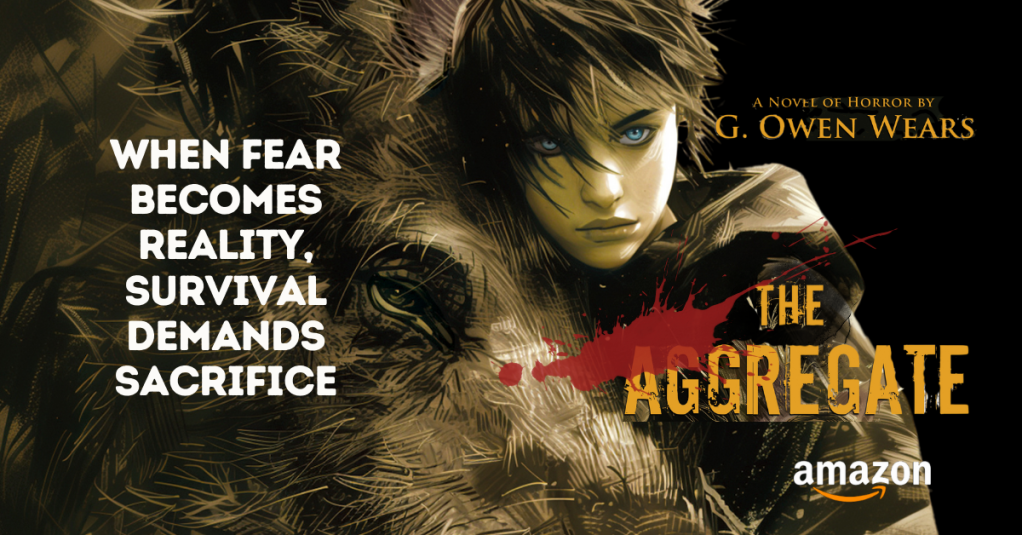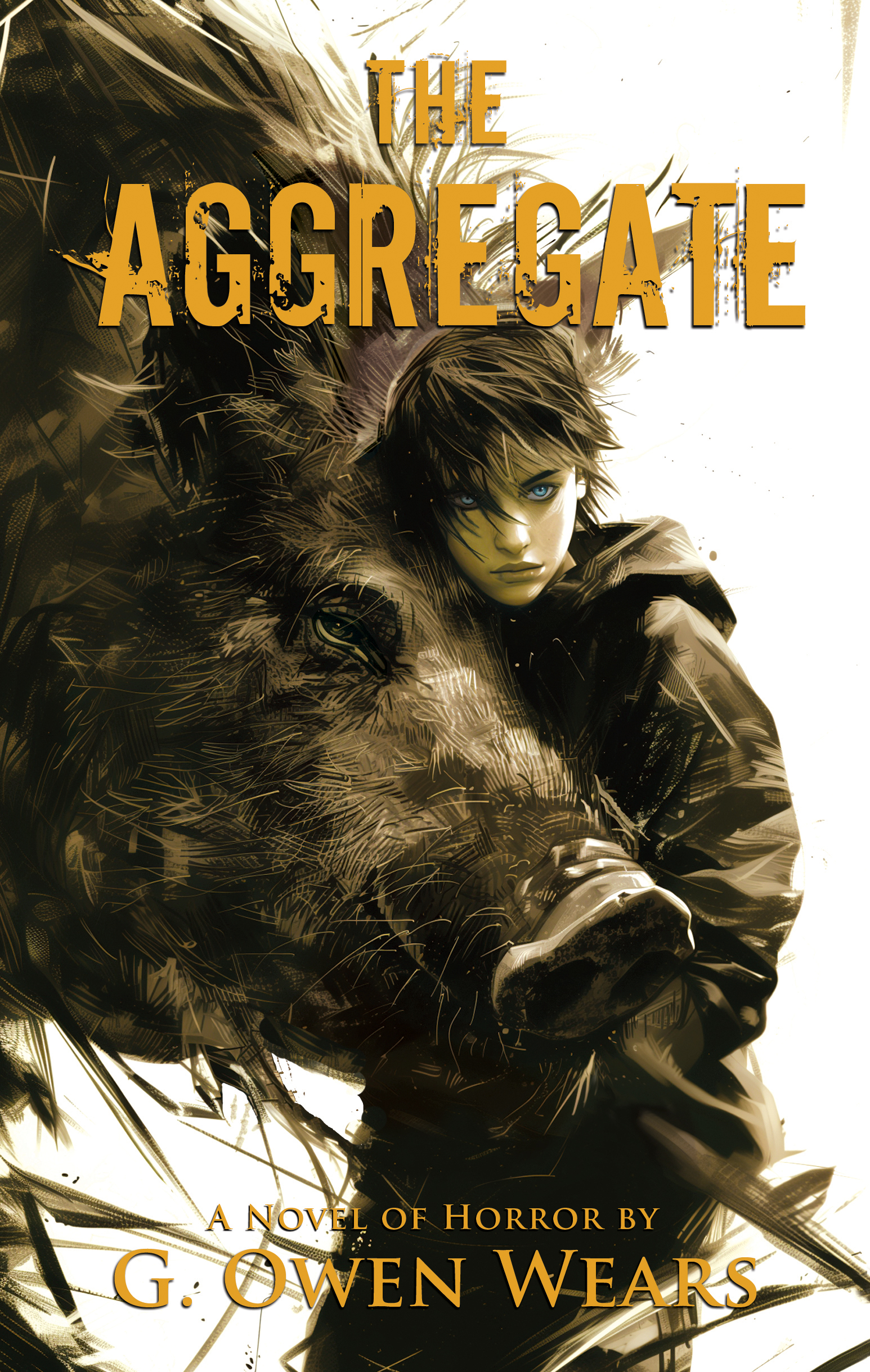-What inspired you to write “The Aggregate”?
Oddly enough, it was a conversation with my grandmother about factory farming. During the conversation I mentioned that I should write a story about the bizarre and often inhuman practices of corporate food production. Since that put me on the hook, I figured I actually had to write the damn thing. It started off as a comic series, but that fell through when the artist left. I then let it sit for several years. During those years the story grew and expanded in my mind. I picked it back up again during the lockdowns in 2020. Working from the original comic scripts, I finished 3/4 of the first draft. It took me several more years to finalize and edit the book, but it was well worth the effort.
-Which authors or works have influenced your writing style the most?
I’m partial to the works of James Lee Burke, John D. MacDonald, Richard Adams, Terry Pretchett, Glen Cook, Kent Haruf, and Clark Ashton Smith. Their use of language is masterful. Anyone who wants to learn how to tell a story ought to give these fellows a try.

-Can you walk us through your writing process for this book?
Each book I write has a completely different flow and process. “Beware the Little Children” was an absolute breeze. I finished it within the space of a few weeks. “The Aggregate”, on the other hand, was an absolute slog. It took me years to get the manuscript into shape. Even then, when I would go back to tweak a detail here, or add a detail there, I found myself revising whole chapters. Basically I ground away at it for years before the book was finally in a state worth publishing.
-How do you handle writer’s block or moments of low inspiration?
Tempter tantrums mostly. Well, that and diversion. I set myself other tasks related to writing and work on those while I wait for my brain to get back on track. Sometimes I’ll revise another book or story I’m working on, sometimes I’ll do some design work on a cover. Even marketing my books online is a way of working on a project when the words simply refuse to make the leap form my head to the page.
-How did you develop the main characters in “The Aggregate”?
The main characters just showed up when it was their time to make an appearance. I didn’t have any mission in mind for them, they all developed organically. The Ashwood family was apparently already a thing; I just got a glimpse into their lives. It’s unfortunate that my glimpse came at the worst possible moment. Poor Lucy, her cousin, and her aunts went through hell. I just wrote their story down.
-Are any characters based on real people or experiences?
Absolutely.
-What central themes do you explore in “The Aggregate”?
As mentioned at the beginning of the interview, the brutality of factory farming is a central theme; large corporations controlling the food supply and that sort of thing. Extremism, self-righteousness, political indoctrination, domestic terrorism, and humanities inhumanity are also central themes. Not enough for you? There’s also a bit about how difficult it is to be a teenager, especially when the world comes crashing down around your ears.
-What message or feeling do you hope readers take away from your book?
That no matter how small you are, how beaten down by a social, political, or religious system you may be, one person can still change everything. Whether that change is for good or ill is another conversation. I also want people to be squirm a little bit.
-Are you working on any new projects or books at the moment?
Currently I’m working on my fantasy series “Welkin the Returned” about a cranky middle-aged wizard, his imp, and all the cataclysmic trouble they get into. Book number two is with my editor as I write this, and I just wrapped up the first draft of book number three.
-Do you plan to continue writing in the horror genre, or are you considering other genres?
I like to bounce back and forth between genres. Sometimes the ideas knocking around in my head lean towards fantasy, other times science fiction or crime thrillers. The world always needs more scary stories to help us deal with the very real horrors we are exposed to, so I don’t think I’ll ever stop writing horror. Plus, I love the atmosphere of a good horror novel. Getting to live in one, even for a little while, is one of life’s great pleasures.
-Do you believe “The Aggregate” reflects or comments on current societal issues?
I’d say so. Most everyone has an idea about the trouble we’ll be in if our agricultural system keeps degenerating. They’re also aware of such homegrown atrocities as the Oklahoma City bombing and the siege at Waco. Perhaps creeping horrors and talking pigs aren’t really in their wheelhouse, but things change. Maybe next year the cicadas will start dancing in fractal patterns and seedpods will sprout eyes.
-How do you hope your book impacts the horror genre and its audience?
All I want is for people to be entertained and to do a bit of thinking about what drives otherwise rational individuals to do horrible things. If my book has a positive effect on someone, even if it’s just to wile away a few hours, I’ll consider it a success.
Discover more from Blue Reading Corner
Subscribe to get the latest posts sent to your email.


